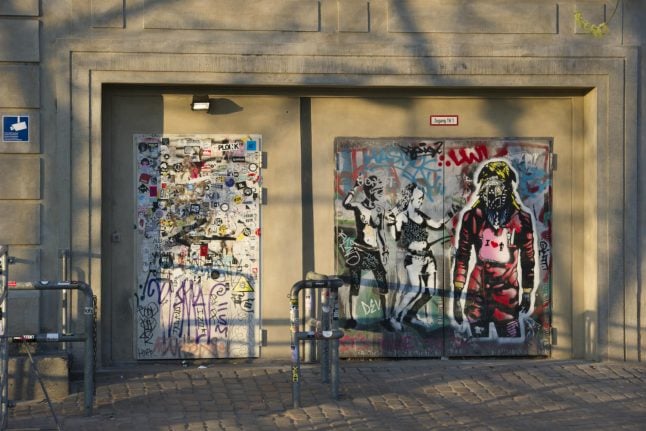However, the club won’t be opening its oft-dubbed “hardest door in the world” – named for its notoriously picky bouncer – but holding the event outside, and with face masks.
Starting from 4 pm on Saturday, partygoers will be welcome in Berghain’s summer garden.
“After a long break, we will dare to start the summer slowly,” organisers wrote on the club’s homepage.
Like the entire Berlin club scene, Berghain has been closed since March 14th, and a reopening of the clubs themselves is not in sight due to the pandemic.
Berghain, however, has found other ways to stay in business, such as hosting an unusual acoustic sound exhibition which stretches through the end of this weekend.
READ ALSO: Berlin club Berghain reopens doors with restrictions
For the garden party – which will take place with a limited number of guests and only in good weather – the Berghain has planned hygiene measures “for the protection of all guests and employees”.
“Please bring your masks with you, covering you mouth and nose sufficiently and avoiding direct contact with other guests, unless you come from the same household,” wrote the organizers.
“Masks are mandatory in the entire entrance area, as well as on the dance floor and in the toilets. We have also installed fans above the dance floor and in the toilets to prevent the spread of aerosols.”
A right to party?
Berlin’s numerous techno clubs have been the hardest hit in the coronavirus crisis, with no date in sight to when they can officially open.
The capital stepped in to help them from going bust, and granted party giants including About Blank, Kater Blau and Tresor an average of €80,000 in aid.
READ ALSO: Berlin clubs receive an average of €80,000 to ensure that corona doesn’t kill off techno
Berlin has been looking for safe ways to host parties outdoors after an increasing number of violations for large group events.
On Tuesday evening, 70 police officers broke up a party of over 1,200 people in Hasenheide Park, and on Wednesday evening police also stopped a party of over 250 people in Volkspark Friedrichshain. In both cases, people were not wearing face masks and minimum social distancing requirements weren't observed.
Last week, Berlin’s City economics minister, Ramona Pop, sent a letter to district mayors calling on them to find parks, streets, squares and sports halls that would make suitable venues.
“Berlin misses its diverse club scene. Clubs and bars are suffering economically during the corona crisis. That's why, in addition to providing immediate aid, we want to create legal opportunities to party in public areas for the clubs and Berliners,” Pop told the Berliner Morgenpost.
“In this way, legal celebrations can be organised professionally and in compliance with rules,” she added.
Vocabulary
To dare – wagen
limited number of guests – (die) beschränkte Gästezahl
Dance floor – (die) Tanzfläche
to cover – bedecken
We're aiming to help our readers improve their German by translating vocabulary from some of our news stories. Did you find this article useful? Let us know.
n



 Please whitelist us to continue reading.
Please whitelist us to continue reading.
Member comments